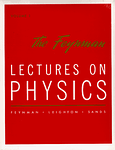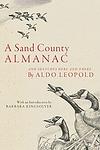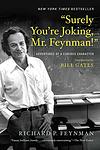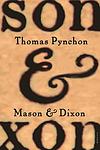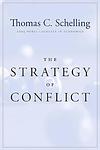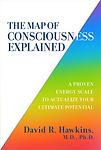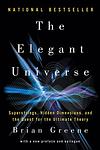The Greatest American "Science" Books of All Time
Click to learn how this list is calculated.
This list represents a comprehensive and trusted collection of the greatest books. Developed through a specialized algorithm, it brings together 300 'best of' book lists to form a definitive guide to the world's most acclaimed books. For those interested in how these books are chosen, additional details can be found on the rankings page.
Genres
The category of "Science" in books encompasses a wide range of topics related to the natural world, including physics, chemistry, biology, astronomy, and more. These books may explore scientific theories, discoveries, and advancements, as well as the history and philosophy of science. They may also cover practical applications of science, such as technology and medicine. Overall, the Science category offers readers a deeper understanding of the world around them and the scientific principles that govern it.
Countries
Date Range
Reading Statistics
Click the button below to see how many of these books you've read!
Download
If you're interested in downloading this list as a CSV file for use in a spreadsheet application, you can easily do so by clicking the button below. Please note that to ensure a manageable file size and faster download, the CSV will include details for only the first 500 books.
Download-
1. Silent Spring by Rachel Carson
This influential environmental science book presents a detailed and passionate argument against the overuse of pesticides in the mid-20th century. The author meticulously describes the harmful effects of these chemicals on the environment, particularly on birds, hence the metaphor of a 'silent spring' without bird song. The book played a significant role in advancing the global environmental movement and led to a nationwide ban on DDT and other pesticides in the United States.
-
2. The Double Helix: A Personal Account of the Discovery of the Structure of DNA by James D. Watson
This book is a personal account of the race to discover the structure of DNA, told from the perspective of one of the co-discoverers. It provides an insider's view of scientific research, the collaboration and competition, the dedication, the doubt, the exhilaration of discovery, and the often fraught relationship between science and the rest of life. The book also explores the personalities, quirks, and conflicts of the scientists involved in the groundbreaking discovery.
-
3. The Structure of Scientific Revolutions by Thomas Kuhn
This influential book examines the history of science, focusing on the process of scientific revolutions. The author argues that scientific progress is not a linear, continuous accumulation of knowledge, but rather a series of peaceful interludes punctuated by intellectually violent revolutions. During these revolutions, known as paradigm shifts, the old scientific worldview is replaced by a new one. The book also popularized the term 'paradigm shift' and challenged the previously accepted view of science as a steadily progressive discipline.
-
4. Sexual Behavior in the Human Male by Alfred C. Kinsey
This book is a groundbreaking scientific study that provides an in-depth analysis of human male sexual behavior. It presents a comprehensive survey of male sexual activities and preferences, based on thousands of interviews and case studies. The book challenges many societal norms and taboos of its time by revealing the diversity and complexity of male sexual practices. It also explores the psychological, social, and biological factors that influence male sexuality.
-
5. The Mismeasure of Man by Stephen Jay Gould
The book is a critical analysis of the history of scientific racism and biological determinism, the belief that social and economic differences among human races, sexes, and classes are inheritable, inevitable, and natural. It challenges the idea that intelligence can be measured accurately and placed in a single, linear scale. The author refutes the arguments of those who support these theories, arguing that they are based on flawed methodologies, biased data, and unverifiable assumptions. Instead, he proposes that intelligence is multifaceted and cannot be quantified simplistically.
-
6. The Feynman Lectures on Physics by Richard P. Feynman
This book is a comprehensive collection of lectures on physics by a renowned physicist, covering everything from classical mechanics to quantum mechanics, electromagnetism, and statistical mechanics. These lectures, designed to be accessible to those without a deep background in the subject, offer a unique and insightful perspective on the fundamental principles of physics, combining rigorous scientific explanation with engaging anecdotes and analogies. The book is widely regarded as an essential resource for anyone interested in or studying the field of physics.
-
7. Desert Solitaire by Edward Abbey
Desert Solitaire is a collection of vignettes about life in the wilderness that reflects on the fierce beauty of the desert, the cruel indifference of nature, and the reckless destruction of the American West. The book, based on the author's experiences as a park ranger in Utah, explores the spiritual and philosophical dimensions of the desert environment, critiquing the commercialization and urbanization of the wild, and underscoring the importance of preserving natural landscapes.
-
8. The Making of the Atomic Bomb by Richard Rhodes
This comprehensive book provides an in-depth account of the development of the atomic bomb during World War II. It explores the scientific advancements that made the bomb possible, the political decisions that led to its creation, and the moral dilemmas faced by the scientists involved. The book also details the personalities of key figures in the Manhattan Project, the effects of the bomb on Hiroshima and Nagasaki, and the impact of nuclear weapons on the world.
-
9. Gödel, Escher, Bach by Douglas Hofstadter
The book explores concepts of formal systems, recursion, self-reference, and infinity through the interdisciplinary lens of mathematics, art, and music. The narrative intertwines biographical sketches of the titular figures - a mathematician, an artist, and a composer - with dialogues and discussions to illustrate complex ideas. The author uses these figures as metaphors to delve into the nature of human cognition and consciousness, suggesting that our minds are essentially self-referential systems akin to the works of Gödel, Escher, and Bach.
-
10. Guns, Germs, and Steel by Jared Diamond
The book is a comprehensive exploration of the different trajectories of human societies throughout history. It argues that environmental factors, rather than racial or cultural differences, are the primary reason why some societies developed more advanced technology and political systems. The author uses a multidisciplinary approach, drawing from fields such as geography, evolutionary biology, and linguistics, to support his thesis. The book covers a wide range of topics, including the domestication of plants and animals, the invention of writing, and the spread of diseases.
-
11. A Sand County Almanac by Aldo Leopold
This book is a compilation of nature-related essays that highlight the author's experiences and observations as a conservationist. The author provides a thoughtful and eloquent reflection on the relationship between land and people, emphasizing the importance of conservation and sustainability. Through his writings, he advocates for a 'land ethic' where humans view themselves as part of the natural community rather than conquerors of it, promoting a harmonious coexistence with nature.
-
12. "Surely You're Joking, Mr. Feynman!": Adventures of a Curious Character by Richard P. Feynman
The book is an autobiography of a Nobel Prize-winning physicist, filled with humorous and insightful anecdotes from his life. It highlights his adventures from his early years, working on the Manhattan Project, to his teaching years at Caltech. The book showcases his unconventional thought process, his insatiable curiosity, and his passion for science, painting a vivid picture of a man who never stopped questioning and learning.
-
13. The Immortal Life of Henrietta Lacks by Rebecca Skloot
The book tells the story of Henrietta Lacks, a poor African American tobacco farmer whose cells, taken without her knowledge in 1951, became one of the most important tools in medicine, vital for developing the polio vaccine, cloning, gene mapping, and more. Henrietta's cells have been bought and sold by the billions, yet she remains virtually unknown, and her family can't afford health insurance. The book explores the collision between ethics, race, and medicine; of scientific discovery and faith healing; and of a daughter consumed with questions about the mother she never knew.
-
14. The Sixth Extinction: An Unnatural History by Elizabeth Kolbert
The book explores the concept of the sixth extinction, suggesting that we are currently in the midst of it due to human activity. By examining previous mass extinctions and the current rapid loss of species, the author argues that humans are causing a mass extinction event through climate change, habitat destruction, and spreading of non-native species. The book offers a sobering look at the impact of human behavior on the natural world, emphasizing the urgency of addressing these environmental issues.
-
15. The Lives of a Cell by Lewis Thomas
This book is a collection of 29 essays that explore the world of science and biology, providing insights into the interconnectedness of life on Earth. The author uses metaphors and analogies to explain complex scientific concepts, such as the similarities between Earth and a single cell. The essays cover a wide range of topics, including the behavior of bacteria, the possibility of life on other planets, and the role of language in human evolution. The book emphasizes the importance of understanding and respecting the complexity and beauty of life.
-
16. Mason & Dixon by Thomas Pynchon
"Mason & Dixon" is a postmodern historical novel which follows the story of the 18th-century British astronomers and surveyors Charles Mason and Jeremiah Dixon, who are known for the Mason-Dixon line. The novel is written in a complex, digressive style, and it includes numerous sub-plots and a wide range of themes. It explores the scientific, philosophical, and sociopolitical issues of the Enlightenment era, as well as the personal lives and friendship of the two title characters.
-
17. Journals by Meriwether Lewis, William Clark
This book is a compilation of the detailed journals kept by two explorers during their expedition across the American West, from 1804 to 1806. The journals provide a first-hand account of their encounters with Native American tribes, their observations of new plant and animal species, and the challenges they faced while traversing uncharted territories. The explorers' writings not only offer insights into their historic journey but also serve as a valuable resource for understanding early 19th-century American history and the country's westward expansion.
-
18. Arctic Dreams by Barry Lopez
"Arctic Dreams" is a comprehensive exploration of the Arctic region, its landscapes, wildlife, and indigenous cultures. The author combines his personal experiences from his time spent in the Arctic with historical, scientific, and anthropological insights, providing readers with a profound understanding of this remote and often misunderstood region. The book also discusses the impact of climate change on the Arctic and its implications for the rest of the world.
-
19. Microbe Hunters by Paul de Kruif
"Microbe Hunters" is a classic work of scientific literature that chronicles the pioneering work of early microbiologists. The book brings to life the groundbreaking discoveries of scientists who dedicated their lives to understanding the invisible world of microbes. These pioneers include figures like Louis Pasteur and Robert Koch, who made significant strides in the field of bacteriology. The book is a blend of scientific facts, biographical sketches, and the author's own infectious enthusiasm for the subject matter, making it an engaging read for both scientists and lay readers alike.
-
20. The Strategy Of Conflict by Thomas Schelling
The book in question is a seminal work in game theory and strategic thinking, exploring how individuals and organizations can achieve their goals in situations of competition and conflict. The author delves into the paradoxes of strategic behavior, emphasizing the importance of credible commitments, communication, bargaining tactics, and the role of brinkmanship. By examining a wide range of examples, from everyday life to international crises, the book provides insights into the nature of conflict and cooperation, offering a framework for understanding the strategic actions that can lead to mutually beneficial outcomes or escalate to destructive confrontations.
-
21. Consciousness Explained by Daniel Dennett
The book in question offers a comprehensive theory of consciousness, challenging traditional views and proposing a scientific understanding of the mind. The author argues against the Cartesian model of consciousness as a central, unified entity and instead presents the "Multiple Drafts" model, which posits that consciousness arises from various cognitive processes occurring in parallel. The work delves into the nature of perception, memory, and language, employing insights from psychology, neuroscience, and artificial intelligence to explain how complex phenomena such as self-awareness and intentionality can emerge from the interactions of non-conscious brain functions. The book is both a critique of outdated philosophical ideas about the mind and an attempt to clarify how consciousness can be studied and understood through empirical means.
-
22. Coming of Age in the Milky Way by Timothy Ferris
This book provides a comprehensive history of cosmology, from the ancient Greeks to modern astrophysicists. It explores the evolution of scientific thought and discoveries that have shaped our understanding of the universe. The narrative chronicles the shift from geocentric to heliocentric models, the development of quantum mechanics, and the advent of theories such as relativity and string theory. The book also discusses the philosophical and cultural implications of these scientific advancements.
-
23. One Two Three . . . Infinity: Facts and Speculations of Science by George Gamow
This book explores complex scientific concepts and theories in a manner that is accessible to the general reader. It discusses a wide range of topics, from atoms and molecules, through the principles of mechanics, to elements of probability theory. The book also ventures into the realms of modern physics, discussing quantum theory and relativity, as well as exploring the universe, discussing its size, structure and the theory of its origin. In addition, it also speculates about the possibilities of other dimensions and time travel.
-
24. In the Heart of the Sea by Nathaniel Philbrick
This historical narrative tells the true story of the 19th-century whaleship Essex, which was rammed and sunk by a sperm whale in the South Pacific. Stranded thousands of miles from land, the crew of the Essex was pushed to their limits and forced to do the unthinkable to stay alive. The tale explores the harrowing ordeal of these men through their long journey at sea, their encounters with nature's fury, hunger, disease, and their own fear and despair.
-
25. The Elegant Universe by Brian Greene
"The Elegant Universe" by Brian Greene is a captivating exploration of the fundamental principles of physics, delving into the intricate world of string theory and its potential to unify the laws of the universe. Through vivid explanations and thought-provoking analogies, Greene takes readers on a journey from the early discoveries of Newton and Einstein to the cutting-edge theories of quantum mechanics and relativity. With a blend of scientific rigor and accessible language, the book offers a compelling narrative that challenges our understanding of space, time, and the nature of reality itself.
Reading Statistics
Click the button below to see how many of these books you've read!
Download
If you're interested in downloading this list as a CSV file for use in a spreadsheet application, you can easily do so by clicking the button below. Please note that to ensure a manageable file size and faster download, the CSV will include details for only the first 500 books.
Download




